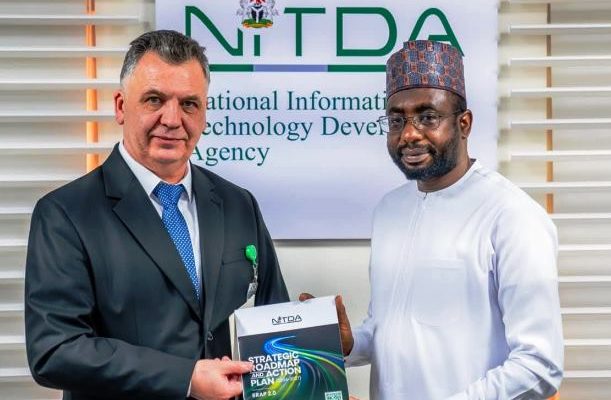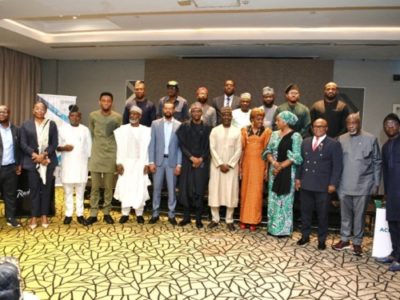
The National Information Technology Development Agency (NITDA) is accelerating efforts to create a one-stop-shop digital portal for all government services. This aligns with President Bola Ahmed Tinubu’s directive to digitize 75% of government services by 2027. With this initiative, NITDA expects to enhance efficiency, improve service delivery, and boost transparency in governance.
RELATED: Harnessing technology for economic growth: Insights from NITDA DG at Jigawa AI workshop
The renewed commitment to the centralized e-government platform was highlighted during a recent visit by a delegation from the Ukrainian Embassy in Nigeria, led by Ambassador Ivan Kholostenko, to NITDA’s headquarters in Abuja. The meeting explored collaborative opportunities between Nigeria and Ukraine in digital governance and public service optimization.
NITDA’s Vision for a Centralized Digital Government Services Platform
NITDA’s Director-General, Kashifu Inuwa Abdullahi, emphasized that despite previous efforts to establish a centralized e-government portal—such as OneGov.net—the agency is now adopting global best practices and refining its strategy to ensure sustainability and scalability.
“We have been conducting research on how countries like the UK, Kenya, and others have successfully implemented unified digital government services platforms. While these models are not entirely transferable, we can learn from their successes and challenges to build a framework that works for Nigeria,” Abdullahi said.
To ensure the seamless integration of government services, NITDA is considering multiple implementation models, including:
- API-driven frameworks, allowing agencies to provide digital services through open and secure platforms.
- Legally backed centralized portals, ensuring compliance and accountability for digital service delivery.
“If we want to achieve this goal, we must establish the right legal frameworks to facilitate smooth and effective digital transformation,” Abdullahi stated.
Collaboration with ITU for Global Digital Governance Standards
In its drive to align with international best practices, NITDA is also engaging with the International Telecommunication Union (ITU) to structure Nigeria’s digital governance framework according to global e-governance standards.
Abdullahi noted that this initiative is a critical step toward reducing corruption, improving efficiency, and ensuring citizen-friendly government services.
“By leveraging global best practices and aligning with national policies, we can create a seamless, efficient, and transparent government service experience,” he concluded.
Ukraine’s Digital Transformation Model as a Case Study
Ukraine’s Ambassador to Nigeria, Mr. Ivan Kholostenko, shared insights into his country’s Diia application, a comprehensive digital governance platform that integrates all state registers, databases, and services into a single digital ecosystem.
Kholostenko highlighted that Ukraine’s Ministry of Digital Transformation is keen to collaborate with Nigeria in implementing similar e-government solutions, focusing on:
- Reducing bureaucracy
- Minimizing human-to-human interactions to curb corruption
- Enhancing access to government services
“We are interested in expanding our digital governance model and supporting other countries in developing robust e-government platforms,” Kholostenko said.
The Road Ahead: Building Nigeria’s Digital Governance Future
With NITDA spearheading Nigeria’s e-government transformation, experts believe that a centralized one-stop government portal will:
- Enhance service delivery by providing faster, more accessible government services.
- Increase public trust through improved transparency and accountability.
- Drive digital adoption across sectors by integrating services into a unified digital ecosystem.
By fostering global collaborations and adopting cutting-edge digital governance models, Nigeria is set to revolutionize public service delivery and position itself as a leader in digital transformation across Africa.

































